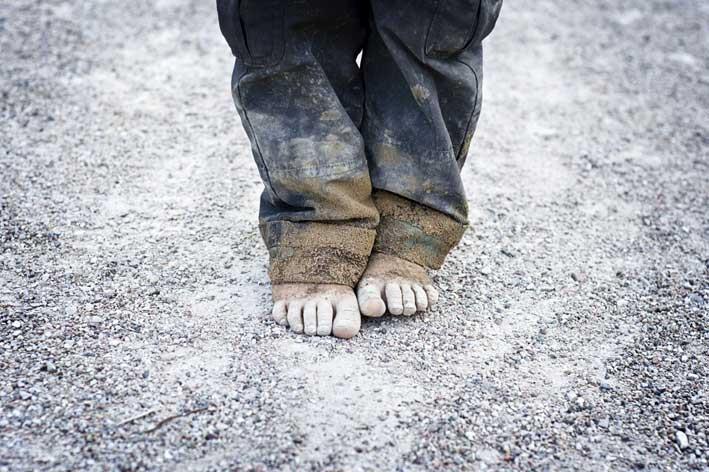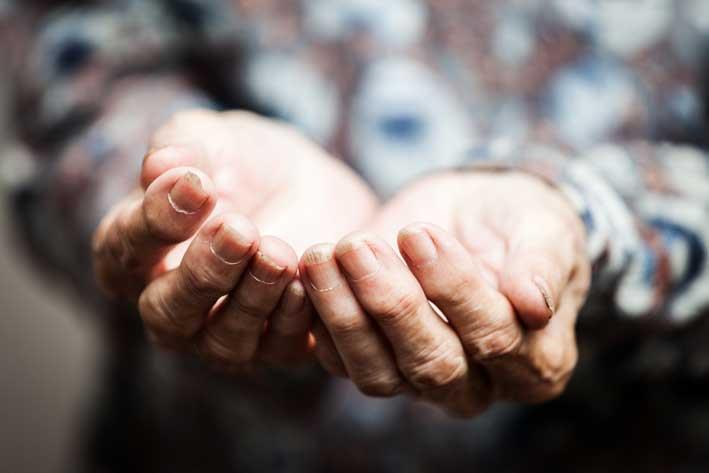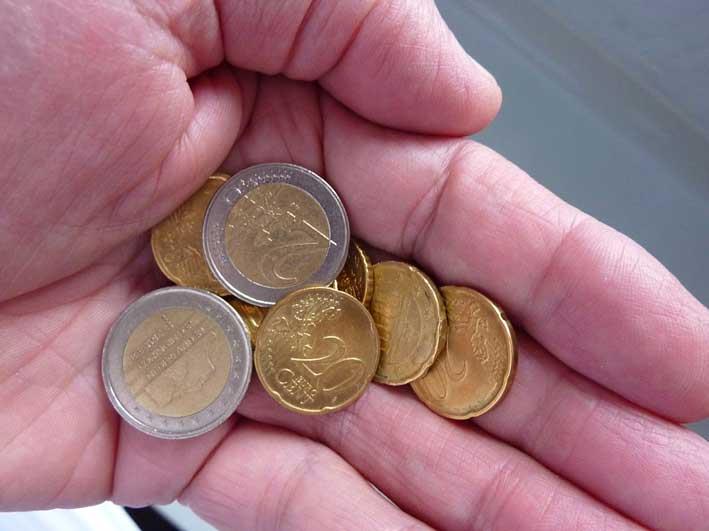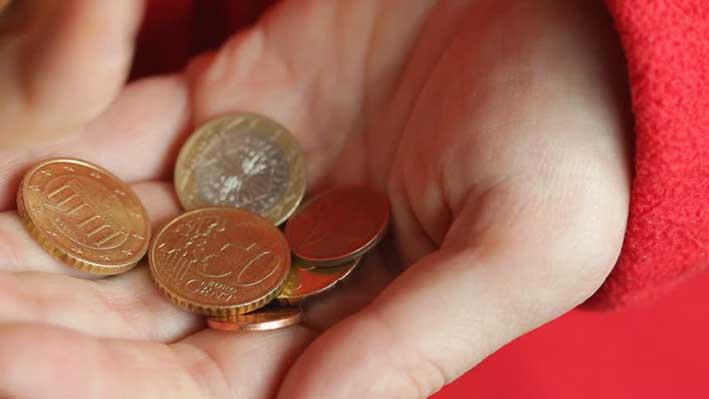Jane’s* story is one with which people living in Malta are becoming all too familiar. The 43-year-old mother and her 11-year-old son could soon end up without a roof over their heads because of a combination of having been dealt a bad hand and an overburdened social housing system.
Jane was previously married and shared a home with her husband, but she had to move out because of the domestic abuse she endured. Three of the couple’s children remained with the father because Jane was homeless after leaving the matrimonial home. The situation with her husband was so bad that police officers had to watch over her while she packed up her things and left.
She was now left to fend for herself and her first-born son, who was born before she met her husband.
She received help from friends who, although also on social benefits, could provide her and her son with shelter, but after some time this was no longer possible. Jane was repeatedly told that there was no social housing available and that she was at the top of the list, while in the meantime she scoured the rental market to try and find something she could afford.
Eventually, she found a €400 flat in the South of Malta. With her six-month lease due to end, however, Jane’s future is unclear – especially if the landlord decides to increase the rent.
There is currently no law preventing landlords from increasing rental prices exorbitantly, as there is no control over the market.
Jane receives €467 in social benefits every month. Due to an outstanding tax bill of €6,000, Jane has €47 docked each month from her social benefits, leaving her with just €420 on which to survive.

Out of the remaining amount, €400 is taken for rent, while a further €50 is taken each month for water and electricity, in accordance with her contract, leaving her with a deficit. Thankfully, Caritas pays her utilities bill each month, so that at least she is left with €20 in her pocket.
The only way Jane is able to feed herself and her son is through donations from the food bank, in addition to food vouchers provided by the Malta Community Chest Fund.
She has spent the last three years fighting for social housing. Time and time again, she has been told that there is nothing currently available and that she will have to be patient.
Five months ago, when she found the place in which she is currently living, the authorities suggested that she sign a three-month contract, because social accommodation would soon be made available to her. However, this promise never materialised and she had to ask for an extension to six months. Luckily, her landlord was accommodating, but there are now two months left of her six-month contract.
“What am I supposed to do if the landlord decides to increase the rent? Jane asks, tears streaming down her face. “He has every right to do so, there is nothing stopping him, and if he does, we’ll end up sleeping on the street.
“I can’t keep bunking with friends. These people are also on benefits. If the landlord increases the rent, I will literally end up on the street with my son.”
More and more social cases are coming out of the woodwork, with the situation being seriously exacerbated by sky-rocketing prices in the rental market. Conversations with people who work in various shelters and social welfare services will tell you how inundated they are.
“If it weren’t for social services and voluntary organisations providing food, my son and I would starve,” Jane said.

A spiral effect – from bad to worse
Due to the severe anxiety and uncertainty Jane has faced in trying to secure long-term housing over the past three years, she has developed a number of medical conditions.
She explained that due to the stress and tension of wanting to provide for her child, the shame of struggling to make ends meet and the crippling uncertainty about ending up homeless in Malta, she now has to take medication for depression and extreme anxiety, her blood-sugar levels and also a heart condition.
“I feel trapped. In this situation, just getting out of bed feels like climbing up a mountain. I can’t even cope without my medication. When I don’t have my pills, I spend hours crying uncontrollably: I’ve never known stress like this.
“This situation makes it impossible to hold down a job. Running around social welfare agencies to get updates on my rent subsidy – which has not come through yet – going to the food bank, taking the bus with my son to take him to school and to Christian doctrine lessons (muzew) together with all the anxiety, makes it impossible for me to work.”
Jane added that her cash situation is so dire that should her son, who suffers from asthma, get a cold or gastric flu or catch anything from school-mates, she has no way getting him to a doctor or buying the necessary medication for him.
The effects on her son
Jane explains that her son has becoming increasingly nervous and anxious. He is forced to share a bed with his mother because of their accommodation situation. She painfully explained that it is heartbreaking for a mother to see her growing son with no space to be on his own, do his homework or to just be himself.
She stressed that he does not go to school without a packed lunch, and that she does everything in her power for him, but as the problems pile up and spiral out of control, she has come to her wit’s end.
Jane repeatedly expressed her gratitude that there are services in place that allow her to feed her son.

Housing and rent
The government has finally woken up to the situation and a White Paper on the housing and rental market is currently in the works. The intention is to ascertain the issues people are facing in the rental market, while also looking into how to safeguard both tenants and landlords without introducing rent control or price-capping.
Finance Minister Edward Scicluna and Malta Developer’s Association chairman Sandro Chetcuti have both said that the majority of Maltese own property and do not rent. Scicluna used the statement to allay concerns about the rental market, saying that he would be more concerned if interest rates went up, as that would affect many people.
Jane brought this up during the interview. It was here that she let her emotions of frustration and despondency get the better of her. “When I heard the government say this I wanted to climb into the television and confront them. I wanted to cry and scream and rip my hair out.”
Currently, landlords have no protection from tenants who abscond, while tenants have no protection at all. For many people, there is a huge concern that their landlord will increase the monthly rent exorbitantly, since there is nothing to prevent them from doing so.
In the absence of any form of regulation in the rental market, and while social housing is unavailable because of an overburdened system, it is people such as Jane who are completely socially excluded and isolated from the rest of society. By the time her rent subsidy is granted, it will mean very little because she will probably be unable to find another €400-a-month property.

Caritas comment
Caritas, Malta’s leading anti-poverty and pro social justice agency, knows the situation better than most. Marica Mizzi, who is the press officer and fund-raising manager, said: “Caritas has repeatedly called for some form of control over the rental market. Too many people are finding themselves in precarious situations. Rental prices continue to explode. We have people coming to the island who can afford to pay, but this comes at a cost to society.”
“Caritas works by appointment. These days we get about five drop-ins a day – people who are homeless and have no food.”
Asked if they have seen an increase in the last 10 years, Mizzi said that while there are not really any people literally sleeping on the streets and begging, there are still serious problems. Recently, Caritas marked the first anniversary of two shelters that provide temporary accommodation.
“Dar Papa Franġisku takes in men, while Dar Marija Dolores takes in women. Percentage wise, we give help to more foreigners at the men’s shelter: men who have left another EU state to come and work here and end up in a worse situation. We help them to find work and get back on their feet.
“In the women’s shelter there are more Maltese, because we take in many women who left their home because they were victims of domestic violence.
“It is a situation that has become worse because of explosion in the rental market. So to answer your question, yes – we have seen an increase in the number of people asking for help.”
*name has been changed to protect identity